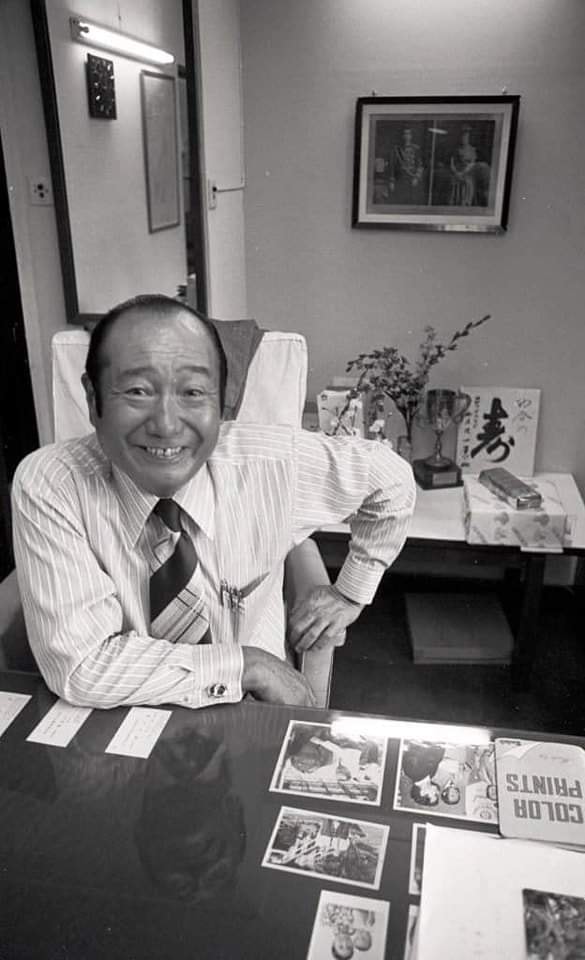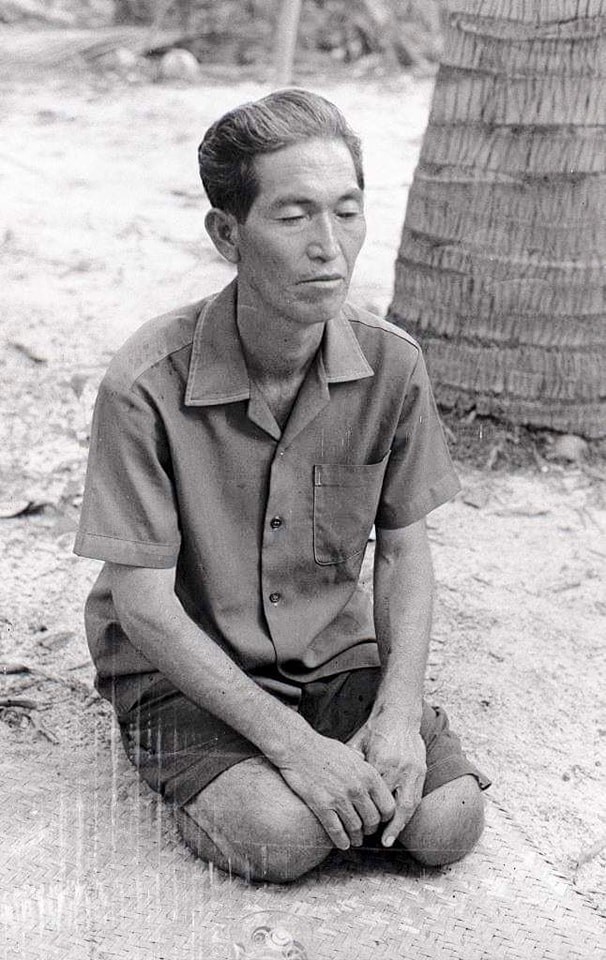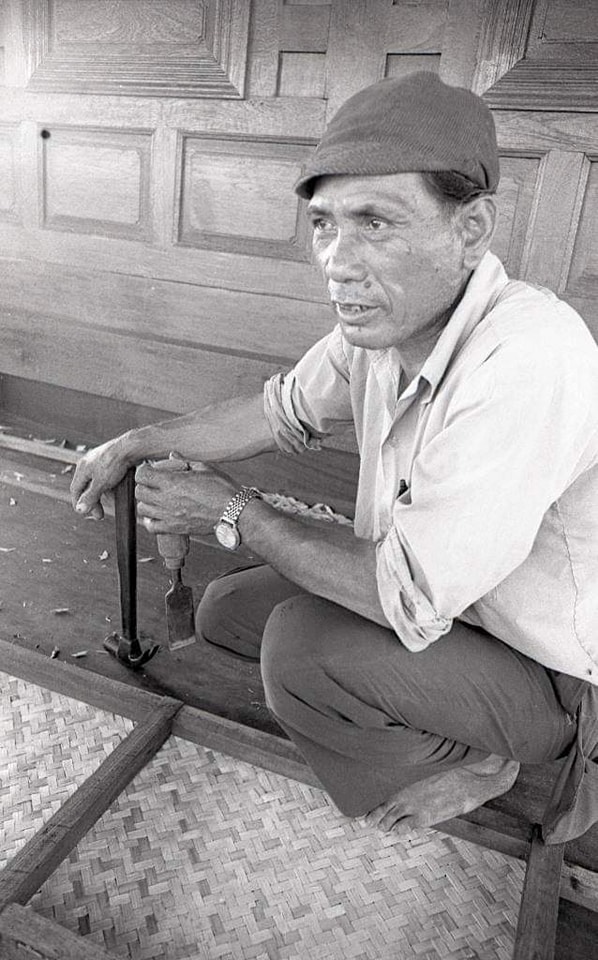Interviews with three former Japanese soldiers who lived in Thailand and refused to return to Japan after World War II ended
An estimated 100,000+ Japanese soldiers had been stationed in Thailand or who passed through to fight their battles in Burma. It is thought that at least 60 Japanese soldiers who refused to return to their country after World War II ended (some sources even say Japanese soldiers on Thai territory and the Malay Peninsula who did not return to Japan, numbered between 800-1000).
Some former Japanese soldiers were interviewed by John Burgess, and published in The Washington Post on December 1, 1974:
The first was Yoshihisa Matsuda, a former rank sergeant in the Railway Corps who oversaw the construction of the Thai-Burmese Railway.
In 1974, at the time of the interview, Matsuda, 58, was a former Japanese who refused to return to the country after the war that was considered a success living in Thailand because Matsuda was president of Amarin Hotel, Sanichartow Nightclub and several other companies, as well as a member of the Rotary Club.
After the Japanese government surrendered in 1945, Matsuda was taken as a prisoner of war and held at a Japanese military camp, but he managed to sneak away. From 1946 to 1947, Japanese prisoners of war were returned to the country, but Matsuda himself refused to return.
Matsuda entered Bangkok but was arrested by Thai authorities on suspicion of being smuggled into Thailand. While he was incarcerated in prison, there was a blackout. Matsuda was a skilled mechanic. He repaired the prison’s electrical system until it was back to normal use.
For the goodness and skill of Matsuda to be able to repair the electrical system, he was granted Thai citizenship (It is understood that in the aftermath of World War II, Thailand needed people with electrical or mechanical skills to repair and develop these systems.)
Matsuda later began to work on building his own future in Thailand and succeeded and was considered one of the wealthiest former Japanese soldiers based in Thailand. In later years, he tried to seek out fellow Japanese soldiers who had refused to return to the country and to assist them.
Matsuda smiled during the interview and also said that when he himself first returned to Japan after World War II ended, he was forced to resign. He discovered that relatives in Japan had built a court for Matsuda because Japanese authorities informed relatives that Matsuda had died. When Matsuda returned and relatives realized Matsuda was alive, Relatives immediately vandalized the courthouse.
The second was Chisaburo Sabe, who was 53 at the time of the interview. He said that before the end of the war, he had the rank of level ten [?]. When the war ended, he didn’t want to go back to Japan and escaped from the camps, hiding in places, eventually taking a Thai wife, while living in a dilapidated wooden house on a coconut plantation, several kilometers from the main road. The house where he lived is located not far from the area that used to be a Japanese prisoner of war camp (in an interview, he said he had fled a prisoner of war camp 60 miles northwest of Bangkok , which I understand is probably Bang Bua Thong Camp).
According to the law, Chisaburo Sabe is an immigrant fugitive and has never received an alien book. People visiting him were concerned about the Japanese authorities pursuing him and proceeding to bring Chisaburo Sabe to a military court for fleeing the army. The journalist thought that the reason may have only contributed to Chisaburo Sabe answering reporters’ questions sparingly.
During the interview, he noted that he had continued to practice Japanese tradition: there was a mat outside the house to meet guests and a Japanese seat (pictured).
Chisaburo Sabe also said he lived by cutting banana leaves and collecting coconuts for sale. Sometimes doing general mercenary work to raise money. The reporter asked why he didn’t want to go back to Japan. Chisaburo Sabe replied that he himself had no money and did not know if any relatives in Japan would be dead. Because he himself, before the war, had lived in Okinawa.
When the war happened, he came to fight in Southeast Asia. At the end of the war, he received the news that there had been heavy fighting between Japanese and U.S. soldiers on Okinawa, and in his mind he thought his relatives would be dead. But when a Japanese journalist learned about Chisaburo Sabe, he came to the country for an interview. A Japanese journalist informed Chisaburo Sabe that his relatives in Okinawa were still alive, and that relatives wanted to meet him.
Chisaburo Sabe wanted to see those relatives, but also he didn’t want to leave Thailand because he wasn’t sure he could get back in.
A third person, Sasabe Sunao, was 53 at the time of the interview. He worked as a carpenter, living in a two-story wooden house in Nakhon Nayok with his wife and 5 children. On the wall there is a picture of Sasabe Sunao when he remembers being a tenth officer [?] in the Japanese Army.
Many people when they meet him think that he is Thai because his skin color is similar to that of Thais. When the war ended, he himself fled the Japanese barracks and refused to go to the prisoner camp. When Japanese soldiers were sent home, he himself chose not to return.
Sasabe Sunao said you need to understand the culture and belief of Japan back then that the Japanese army would never surrender. If we go back like this, we will be deported and deposed of Japanese citizenship. We have two options: one: suicide, two: fleeing and living in Thailand. Sasabe Sunao chose to live in Thailand, where he initially learned about becoming a carpenter for a career. He earned $3.50 a day and had a Thai wife and eventually received an alien certificate.
When asked if he wanted to return to Japan, he replied: “No.
Sasabe Sunao replied that he wanted to go back to visits sometimes, but didn’t want to go back to living there. Sasabe Sunao also says that living in Thailand is comfortable. If you’re hungry, there’s a kind person to get you something to eat.
There are still many Japanese soldiers who refused to return to Japan after the defeat of the war.
Many people are anxious to live after the war. Some consider returning to die because Japanese soldiers should not surrender. There are many Japanese soldiers who refuse to return, and there are many descendants of Japanese soldiers.



